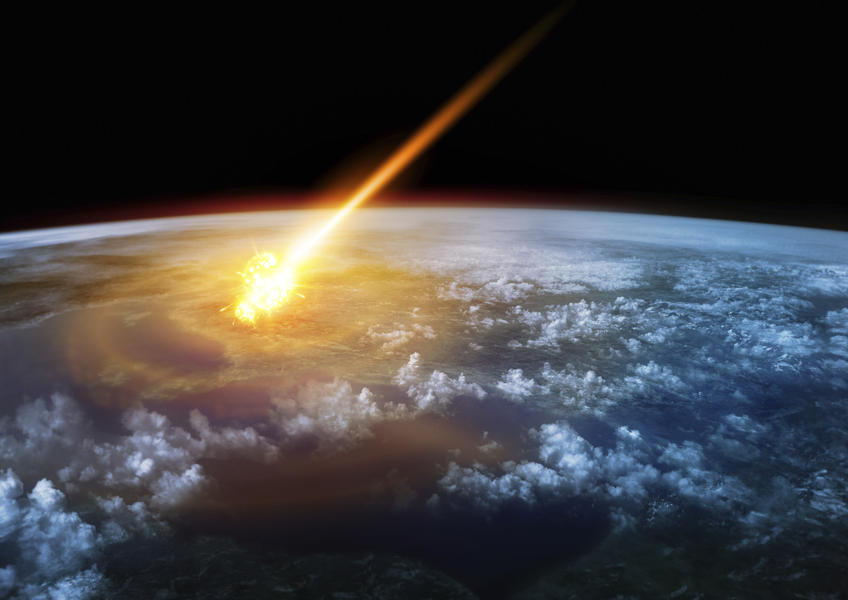The world really did come close to disaster in 2012

A free daily email with the biggest news stories of the day – and the best features from TheWeek.com
You are now subscribed
Your newsletter sign-up was successful
In spite of what fantasists, conspiracy theorists, incompetent interpreters of the Mayan calendar and Roland Emmerich suggested, the world did not end on the 21st of December 2012. But earlier that year, on the 23rd of July, the world really did come extremely close to what NASA estimates would have been a $2 trillion economic and technological disaster.
A coronal mass ejection — a huge burst of hot plasma — from the surface of the sun exploded into space. And if it had hit the Earth, the burst of charged particles would have severely damaged Earth's infrastructure of satellites, computers, the electrical grid, medical equipment, and smartphones. Unshielded electric circuits would be fried.
"If it had hit, we would still be picking up the pieces," Daniel Baker, of the Laboratory for Atmospheric and Space Physics at the University of Colorado, told The Guardian. He adds that "[i]f the eruption had occurred only one week earlier, Earth would have been in the line of fire."
The Week
Escape your echo chamber. Get the facts behind the news, plus analysis from multiple perspectives.

Sign up for The Week's Free Newsletters
From our morning news briefing to a weekly Good News Newsletter, get the best of The Week delivered directly to your inbox.
From our morning news briefing to a weekly Good News Newsletter, get the best of The Week delivered directly to your inbox.
The sun periodically blows off huge quantities of plasma. The last time Earth was struck was 1859, an event referred to in astronomy as The Carrington Event for its discoverer Sir Richard Carrington. That was before we came to rely on electrical equipment and computers for our modern way of life. But even then, it caused telegraph lines to spark enough to set fire to some telegraph offices. And the Northern Lights, were visible as far south as Cuba.
Nobody knows when such an event will occur again, but FEMA warns Americans should be prepared for the possibility, and recommends a series of steps for preparation, including making back-up copies of important digital data and information, keeping your car's gas tank at least half full, and filling plastic containers with water and placing them in your refrigerator or freezer.
A free daily email with the biggest news stories of the day – and the best features from TheWeek.com
John Aziz is the economics and business correspondent at TheWeek.com. He is also an associate editor at Pieria.co.uk. Previously his work has appeared on Business Insider, Zero Hedge, and Noahpinion.
-
 The environmental cost of GLP-1s
The environmental cost of GLP-1sThe explainer Producing the drugs is a dirty process
-
 Greenland’s capital becomes ground zero for the country’s diplomatic straits
Greenland’s capital becomes ground zero for the country’s diplomatic straitsIN THE SPOTLIGHT A flurry of new consular activity in Nuuk shows how important Greenland has become to Europeans’ anxiety about American imperialism
-
 ‘This is something that happens all too often’
‘This is something that happens all too often’Instant Opinion Opinion, comment and editorials of the day
-
 Nobody seems surprised Wagner's Prigozhin died under suspicious circumstances
Nobody seems surprised Wagner's Prigozhin died under suspicious circumstancesSpeed Read
-
 Western mountain climbers allegedly left Pakistani porter to die on K2
Western mountain climbers allegedly left Pakistani porter to die on K2Speed Read
-
 'Circular saw blades' divide controversial Rio Grande buoys installed by Texas governor
'Circular saw blades' divide controversial Rio Grande buoys installed by Texas governorSpeed Read
-
 Los Angeles city workers stage 1-day walkout over labor conditions
Los Angeles city workers stage 1-day walkout over labor conditionsSpeed Read
-
 Mega Millions jackpot climbs to an estimated $1.55 billion
Mega Millions jackpot climbs to an estimated $1.55 billionSpeed Read
-
 Bangladesh dealing with worst dengue fever outbreak on record
Bangladesh dealing with worst dengue fever outbreak on recordSpeed Read
-
 Glacial outburst flooding in Juneau destroys homes
Glacial outburst flooding in Juneau destroys homesSpeed Read
-
 Scotland seeking 'monster hunters' to search for fabled Loch Ness creature
Scotland seeking 'monster hunters' to search for fabled Loch Ness creatureSpeed Read